The idea of a flotilla of little ships crossing the English Channel from France to deposit their beleaguered human cargo safely on our shores was born in this country’s darkest hour during the second world war.
To say that the method behind the success of the Dunkirk evacuation 80 years ago has been repurposed for the modern age is something of an understatement. These days the little ships are usually inflatable dinghies packed with desperate young men from Asia and Africa who seek to evade this country’s immigration laws.
They land at various points between Dover and Hastings and – if undetected – many head for rendezvous points pre-arranged with people traffickers for onward transit to London and other major cities. Others end up in south coast towns employed illegally and on exploitative terms in businesses such as hand carwashes.
Often they are intercepted while still at sea and then escorted ashore by the UK Border Force, in which case asylum claims tend to follow, along with detention and a protracted legal process.
While there has been relatively little mainstream media coverage of this irregular immigration and almost no questioning of ministers about it in our current ghost Parliament, it is still widely known.
This is largely thanks to the efforts of one Nigel Farage, broadcaster, former politician and proud Man of Kent. After making one of a series of videos about the phenomenon, Farage was recently visited at home by police officers to advise him about his conduct (an alleged breach of lockdown restrictions) and the result was a blaze of publicity about the issue he was seeking to highlight.
Undaunted by the knock at the door, he has returned to the Channel coast to make more videos for his millions of followers on social media. On Saturday he tweeted that: ‘Over 100 migrants illegally entered the UK by small boat today. The invasion is on.’
To the political Left this amounted to an unwelcome echo of his notorious ‘Breaking Point’ poster during the EU referendum campaign. But to a huge tranche of British public opinion it came as a sign that at least one influential public figure was still prepared to tell it how it is.
The blunt truth is this: although the Tories won a huge percentage of the retired vote and a record percentage of the working-class vote last December, Nigel Farage has at least as strong a claim to understand the psyche of these sections of the electorate. Once again he has alighted upon a major gap in the current political marketplace. And he is right.
In Parliament and on the airwaves of the BBC, when the Government is assailed on immigration it is almost invariably by those berating it for taking too tough or negative a stance, as seen today in exchanges about Priti Patel’s new Immigration Bill which promises to end free movement. Shadow home secretary Nick Thomas-Symonds went straight into bat for the idea of relaxing proposed new restrictions on unskilled foreign labour.
The issue of failing to enforce existing immigration controls by leaving the country wide open to illegal entry and escorting dinghies to shore which are full of people coming from the safe country of France and with no right to reside here just doesn’t register with opposition MPs.
But for the Conservatives to conclude that therefore they are the only game in town for Britain’s many millions of migration-sceptics and vehement opponents of illegal immigration would be a bad mistake.
After all, they used to think they had a monopoly on the votes of those sceptical of the EU and could therefore afford to simply talk a good anti-Brussels game while quietly signing up to integrationist measures whenever they came along. Nigel Farage cured them of that fallacious belief.
It is for this reason he is becoming properly politically engaged again for the first time since the demise of the Brexit Party. Farage clearly believes there is a very substantial vote available to any politician willing to commit not only to an Australian-style points system for regular migration but to an Australian-style approach towards rising illegal migration via sea as well.
In Australia, authorities responded to an upsurge of irregular migrants reaching their shores by boat by setting up a system of indefinite incarceration in offshore detention centres, so those who had attempted to evade immigration law would never set foot on the mainland. This hardline policy was greeted with an explosion of liberal rage but eventually led to a dramatic reduction in the number of boats and proved popular with the electorate too.
So far the UK Government is following a much more European or Mediterranean approach by rescuing the boats it finds in the Channel and bringing them ashore. This obviously risks creating a new ‘pull’ factor as people in the camps in northern France realise that paying people-smuggling gangs to sail or row them to Britain will either lead to successful illegal immigration or to entry into an asylum process that seldom concludes with removal.
Unless the UK policy changes, the volume of illegal traffic will grow throughout the summer and every spring and summer thereafter. And while ministers will not be challenged much by opposition MPs in the Commons on this, they will be by Farage and his supporters.
Farage has yet to create a bespoke political vehicle for this purpose but his masterminding of the pop-up phenomenon that was the Brexit Party should tell us that he has the skills and contacts to do so very quickly if he so decides.
Yet a Tory administration committed to setting up Australian-style offshore holding centres for detained irregular migrants claiming asylum, would create yet another epic battle with the British liberal establishment in all its guises – the Labour Party, BBC, charity sector, universities, and quangocrats. There is little reason to think the party will be prepared to do so unless forced to by the spectacle of voters defecting once more to Nigel Farage’s corner.
Very soon, Boris Johnson and Priti Patel may well find themselves between a rock and a hard place. Or as they may prefer to characterise it, between the devil and the deep blue sea.
Got something to add? Join the discussion and comment below.
Get 10 issues for just $10
Subscribe to The Spectator Australia today for the next 10 magazine issues, plus full online access, for just $10.

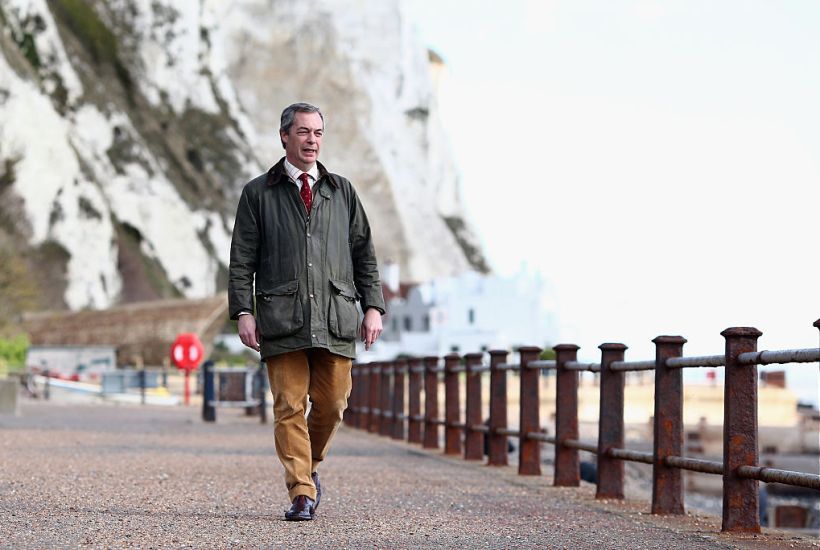
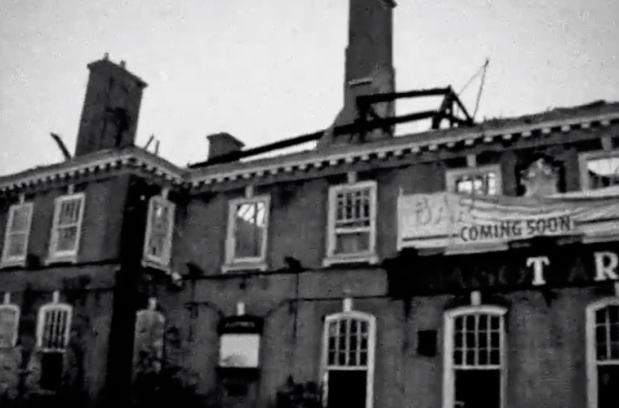
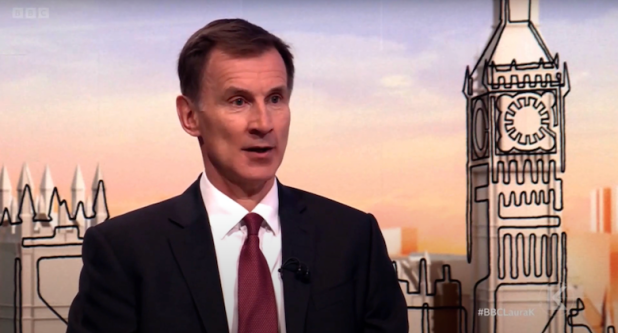
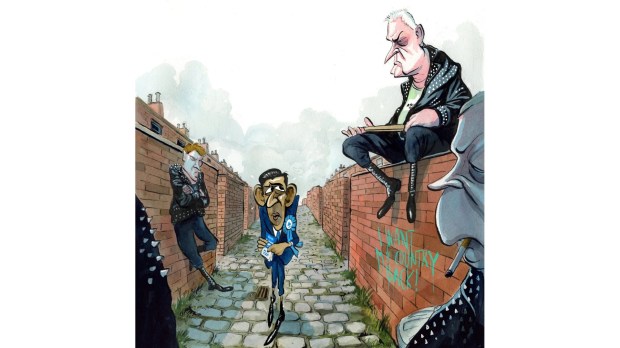
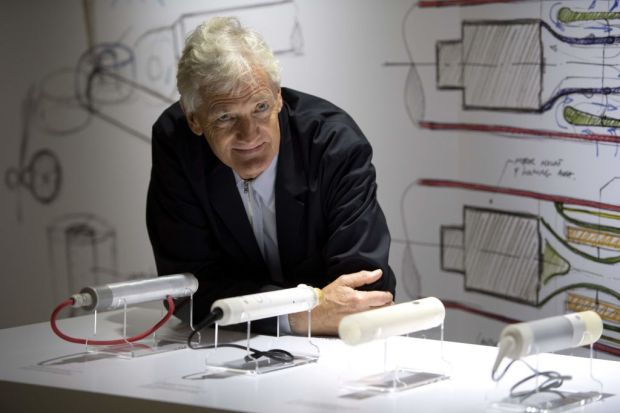

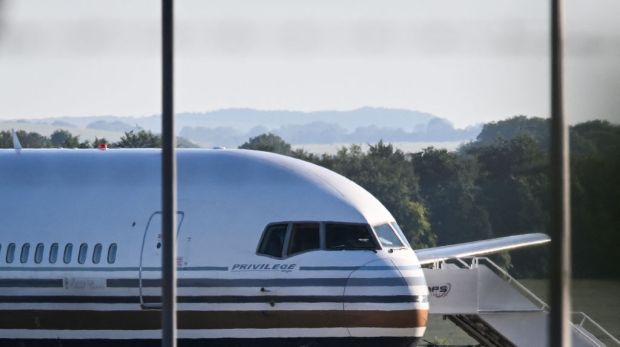












Comments
Don't miss out
Join the conversation with other Spectator Australia readers. Subscribe to leave a comment.
SUBSCRIBEAlready a subscriber? Log in